Adam Hankinson, Managing Director at Furniture Sales Solutions, shares an insight into how they help furniture retailers turn missed opportunities into measurable wins.
How has business been so far this year?
It’s been a strong and steady year; we’re now fully booked for 2025 with many customers booking in for follow up weeks into 2026.
Despite the economic noise, retailers are still investing in their teams—because they’re seeing a real return. As one client put it, in today’s market, every potential customer must count. The skill, confidence, and consistency of your sales team can be the difference between a £4,000 sale and a missed opportunity. We’ve partnered with long-standing independents and national groups this year—and the appetite for structured, measurable improvement has never been clearer.
What common themes are you seeing when delivering training to your customers?
Inconsistency is the big one. Many salespeople rely on personality or habit rather than intention or skill. That’s why we focus on embedding our 7 Habits framework—so teams shift from guesswork to structure.
Another theme is lack of confidence in asking the right questions or qualifying early in the process. Our coaching creates a safe space to try new approaches, build confidence, and move from reactive to intentional selling.

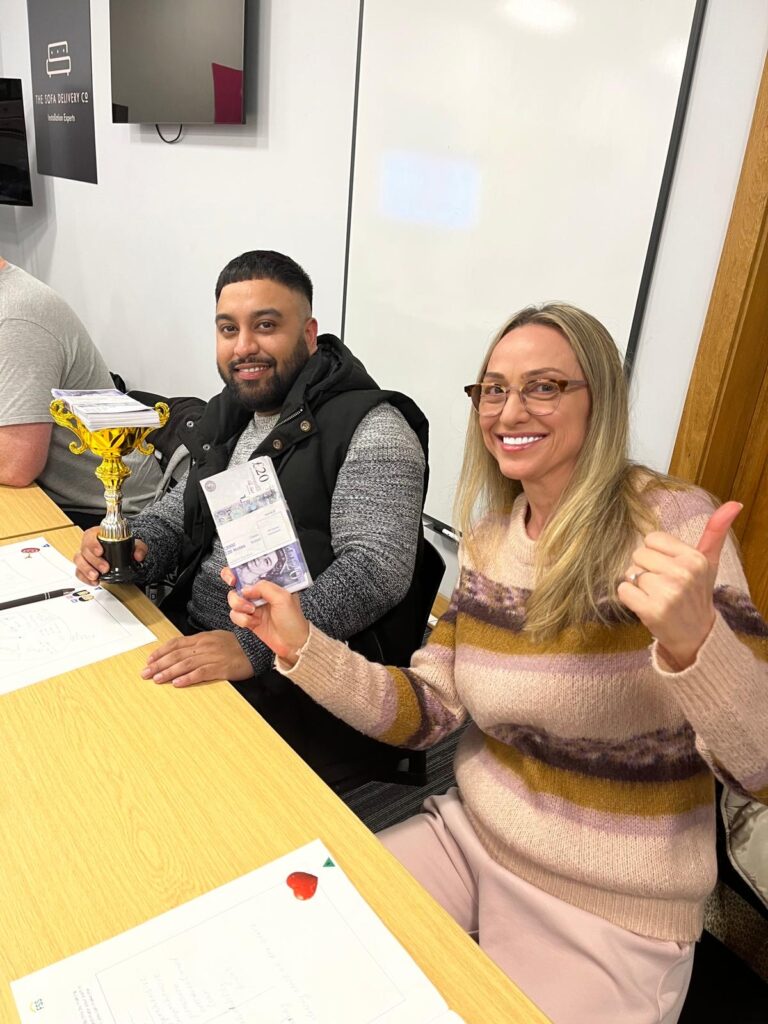
What other challenges are retailers reporting—and how are you overcoming them?
Recruitment and retention are huge. Many businesses are hiring for attitude and training for skill—which is absolutely right. But without the right support, new starters struggle. Fairway Furniture used our programme to turn cautious new recruits into confident performers. Caseys in Ireland saw measurable improvements in product attachment and customer feedback using the same approach with new people.
We’re also helping companies embed coaching into their culture. One client increased Staingard sales by £65,000 over 3 months by simply having managers conduct consistent one-to-ones. That kind of cultural shift is where real transformation happens.
What are the real problems furniture retailers face with their salespeople?
If footfall is down and customers are more cautious, then the sales people need to be better. We see many owners and managers crossing their fingers that their best sales people get to talk to the customer- you can’t afford to have an a and b team of salespeople- hope isn’t a strategy- training is.
How do these issues show up in the numbers?
Poor conversion. Missed upsells. Low average order values. It’s often death by a thousand cuts. But here’s a simple measure: if each salesperson secures just one more order per week at £1,500, that’s £70,500 extra revenue per head per year. Across 10 salespeople, that’s over £700,000. The cost of not improving is enormous.
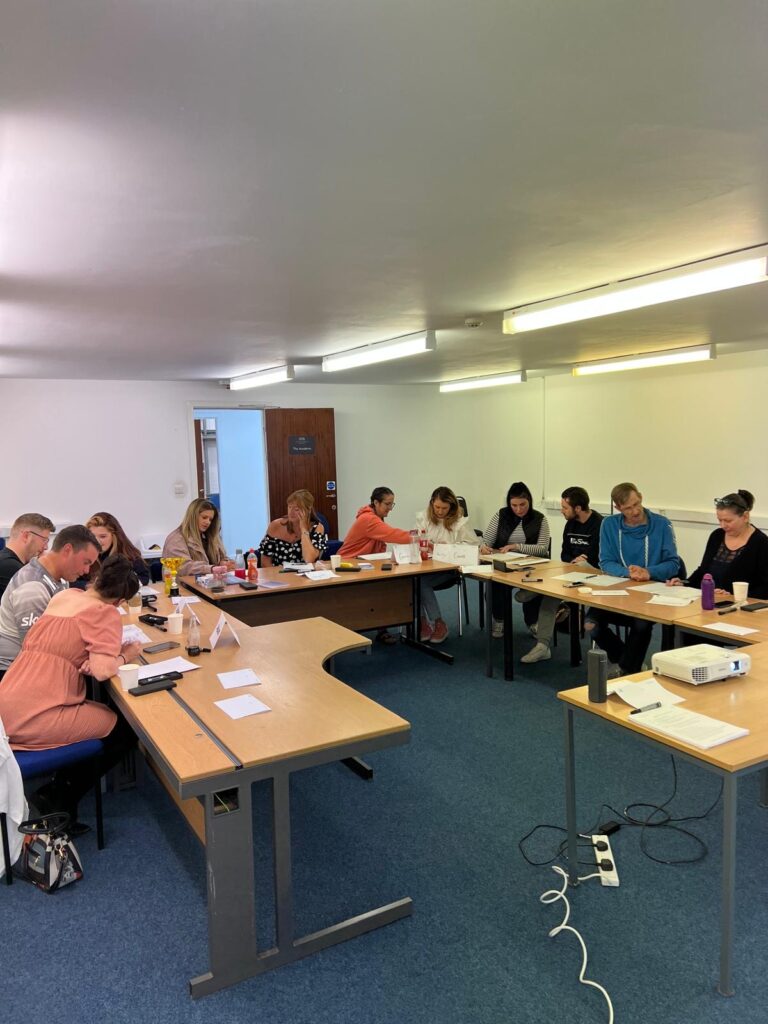
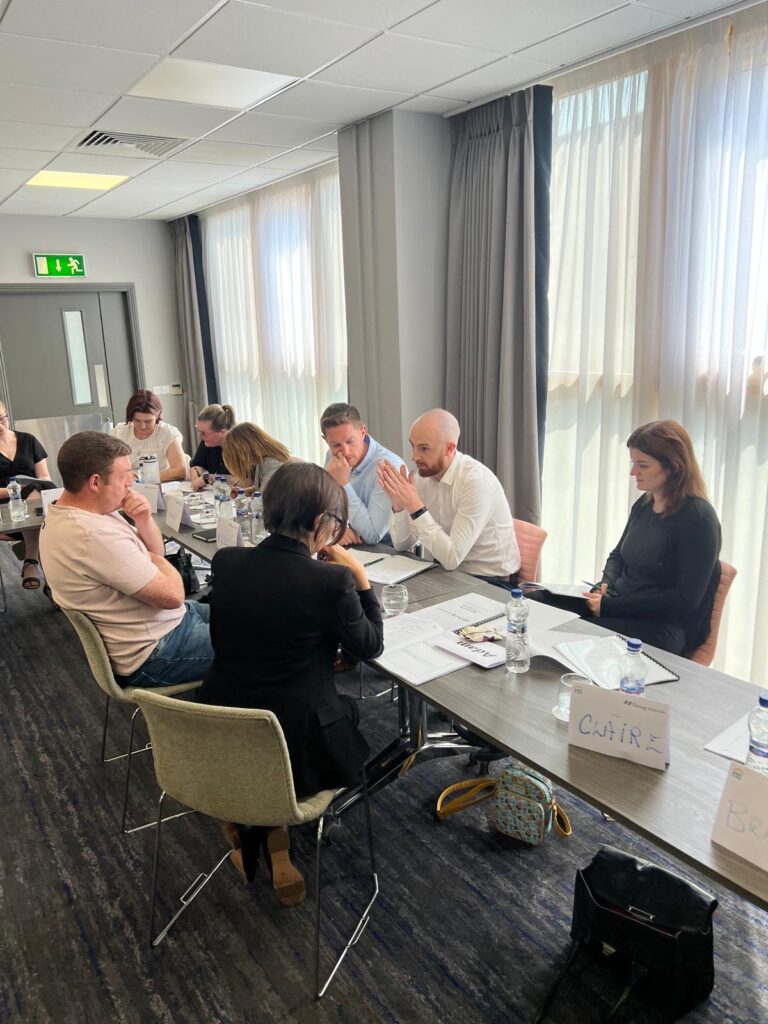
Where does confidence come from—and how do you build it?
Confidence comes from product knowledge, self-esteem, encouragement and good management. When salespeople know what to say, when to say it, and why it works, they feel in control. That’s what we give them—a clear path through every sale. Confidence closes.
How do you help furniture retailers fix that?
We embed a learnable, repeatable sales system: the 7 Habits of the Most Effective Furnishings Salespeople. From opening to referrals, we teach the real-world habits that top performers use. And we support your managers to reinforce them every day.
What does that sales process actually look like?
It’s simple and structured:
1. Attitude
2. Approach
3. Questions
4. Listen
5. Sell the Solution
6. Conclude
7. Referrals
It mirrors how customers buy—so it’s natural to use and easy to scale.
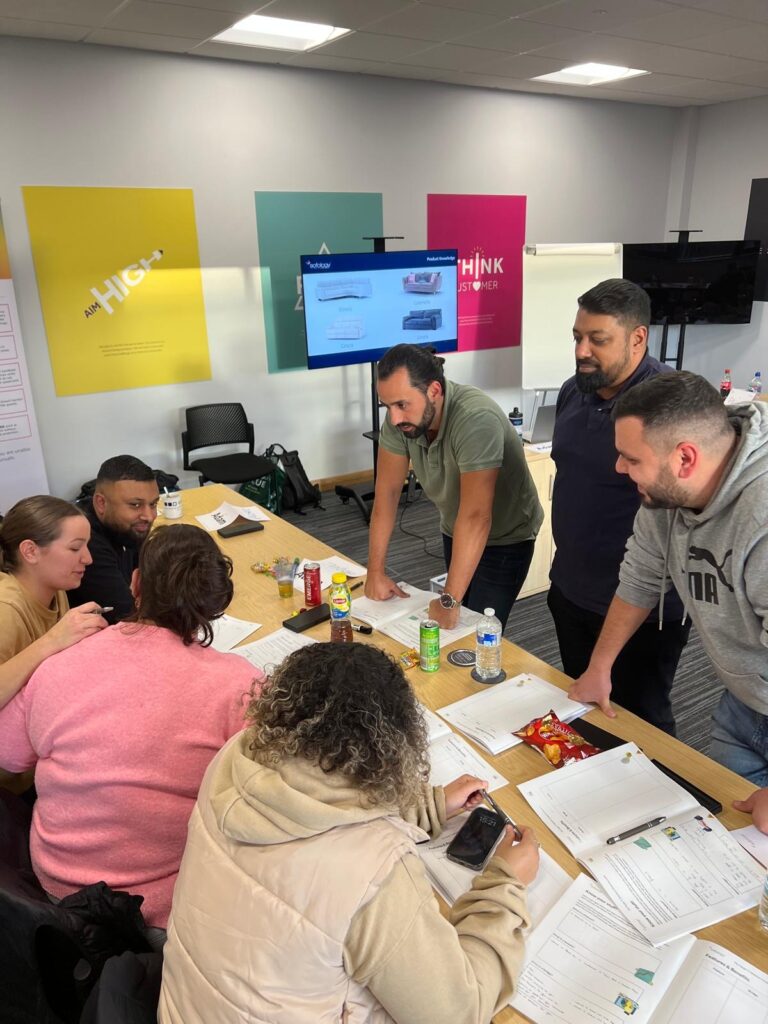
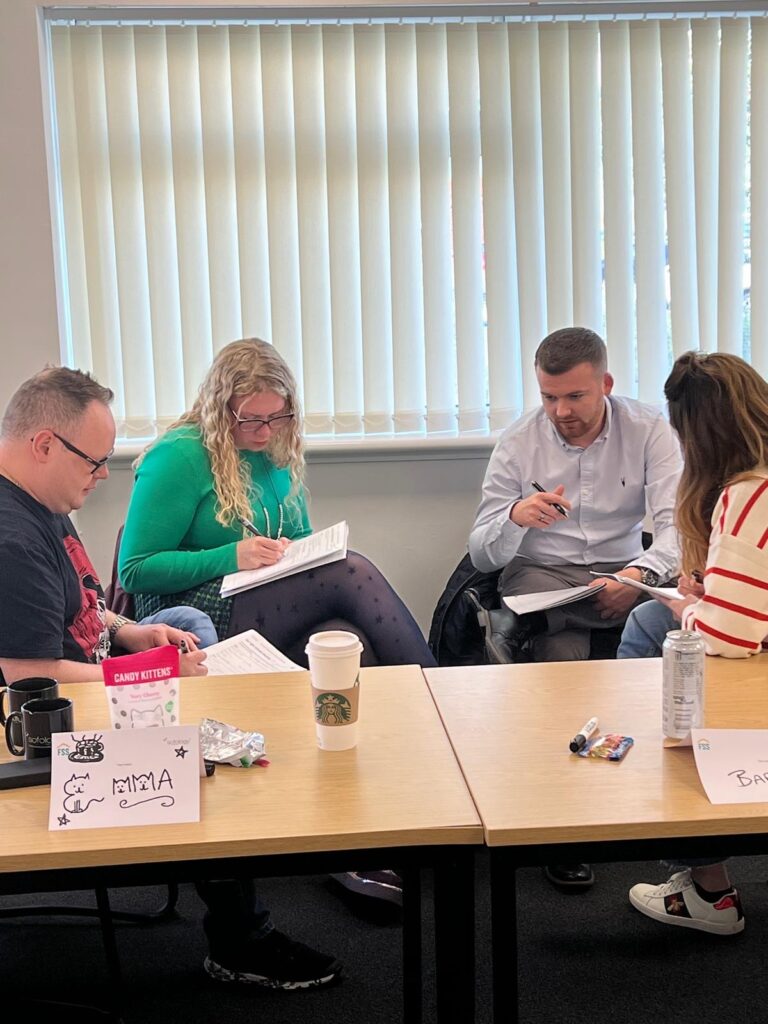
Is this just more training?
No. It’s not training—it’s transformation. Training alone fades. We embed habits, coach leaders, and create performance rhythms. That’s why our programmes stick—and why clients stay with us for years.
How do you work with managers?
We help them become sales coaches, not just floor-walkers. That includes “on the elbow” feedback, one-to-ones, team huddles, and knowing what to praise. When managers lead the sales culture, the change becomes permanent.
What role do managers play in making change last?
Managers are the glue. Without them, training dies on the vine. We train leaders to spot the habits, coach the behaviours, and challenge the drift. That’s what creates consistency—across stores, across teams, every day.
What sort of results do you help deliver?
There’s always an increase in turnover when we work with a client, that’s our guarantee. In one store alone, improvements to closing techniques led to a £1.3 million revenue boost. And the real power comes when you start moving the middle-performing salespeople upwards, the impact across the group is enormous. We’ve seen mattress protector sales jump by 389%, Guardsman rise by 98%, and Staingard conversions at one retailer increase from 17% to 46%. At another, pillow attachments went from under 20% to over 45%. These aren’t one-off wins, they’re the result of consistent behaviours and better conversations, especially around asking the right questions early on.
Do you tailor your method to different types of retailers?
Always. The structure is universal, but the delivery is adapted to each brand’s tone, offer, and customer profile. Whether you’re selling value or premium, modern or traditional, we make the process fit you.

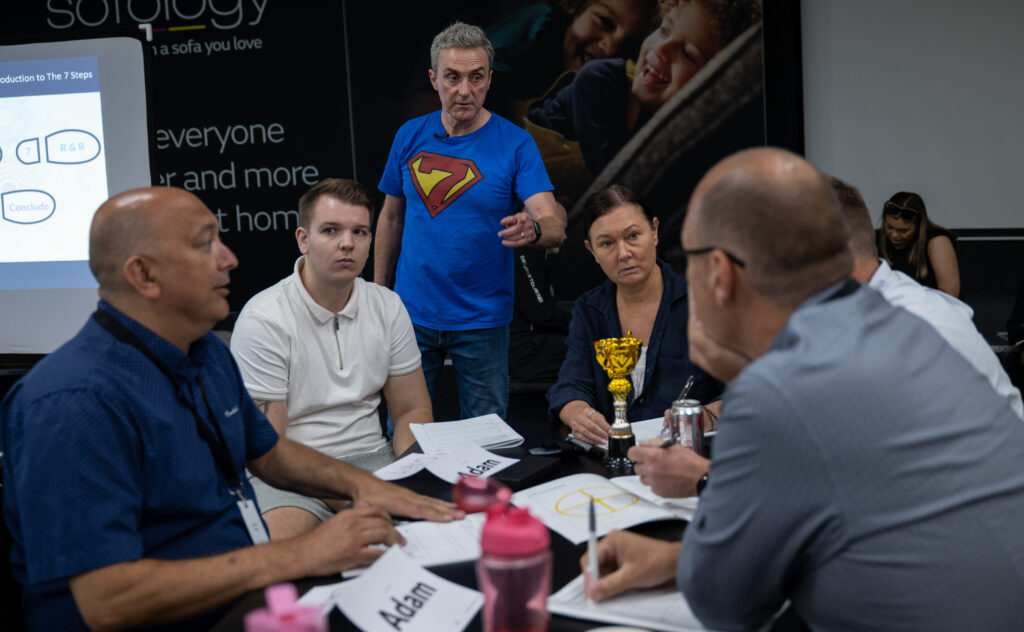
What kinds of retailers do you work with?
We work with national chains, buying group members, and quality independents. Clients include Barker and Stonehouse, Gillies, Housing Units, Caseys, Lenleys, Loom Loft, Downtown, Glasswells, Bradbeers and many more. If you sell home furnishings face-to-face, we can help.
What trends are you seeing in customer behaviour?
Today’s customer is cautious, informed, and sceptical of hard selling. They’ve done the research and want to feel listened to and advised. We train salespeople to slow down, ask better questions, and earn trust. When they do that, customers feel confident—and they buy more.
What’s the financial case for investing in training?
It’s simple: one extra order per week, per person, at £1,500 = £70,500 per head per year. Across a 10-person team, that’s £705,000 of potential gain. Compared to the cost of our programme, the ROI is clear.
How long before retailers see a return?
There’s always an immediate uplift. Programs usually provide a minimum 10x return in the year and pay for themselves in 3 months- we also have our “more sales guaranteed” guarantee – if you’re not happy you don’t pay – everyone pays then asks for more.
What investments has FSS made to support growth?
We’re continually developing our online training platform—short, practical lessons tailored for showroom life. It will include a built-in AI sales assistant to offer live support and coaching. We’ve also expanded our team to meet demand across multi-site and national groups.
Why is now the right time to invest in your sales team?
Because the market has changed. Every footfall matters more. Customers are savvier. And costs are rising. Your people are still the biggest driver of performance. Retailers who invest in skills now will take market share from those who don’t. It’s that simple.
What if we’ve tried sales training before and it didn’t stick?
Then it wasn’t implemented properly. We don’t do “sheep-dip” training. We build a full learning journey: in-person, online, in-store, with manager coaching and KPIs. If it doesn’t stick, we don’t stop. We stay until it works.
Final thoughts…
If you’re reading this and thinking, “We’re doing okay, but could be sharper”—you’re probably right. Most of our clients were in the same place. But once they saw the impact of one more confident conversation per person, per week, everything changed. We help make that happen—consistently.















